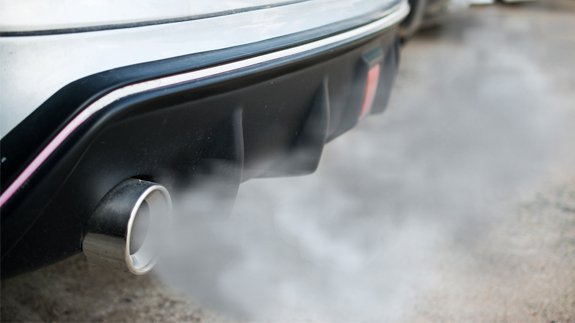St James the Deacon, Sherringham Drive from 2:00pm on Sunday

St James the Deacon, Sherringham Drive from 2:00pm on Sunday


A York man has been given a 20 month suspended sentence for a case of fraud which deprived the public purse of over £86k, in the first social care fraud prosecution by Veritau and City of York Council
Neil Long (aged 54 of Leighton Croft, York) failed to inform City of York Council, who funded his mother’s social care, when his parents’ property was sold in 2014. The case was investigated by Veritau, City of York Council’s counter fraud provider, and successfully prosecuted by the council.
This is the first prosecution of a social care fraud by the council’s legal department and an area of development for the counter fraud team. The Chartered Institute of Public Finance and Accountancy (CIPFA) found that in 2018/19 losses due to adult social care fraud cases nationally had risen by 104% from the previous year.
City of York Council received information that Mr Long, the financial representative for his mother, had sold his parents’ property in 2014 and received £198,000 that he had not declared despite receiving social care funding.
The investigation found that on two separate occasions during 2015, Mr Long informed the council that his parents were still joint owners of the property and that his father still lived there.
During this period, the council spent £86,000 on social care for Mr Long’s mother, which has now been collected in full, as a result of joint working between Veritau and financial investigators from City of York’s Trading Standards team.
Appearing at York Magistrates Court on Tuesday 8 October 2019, Mr Long plead guilty to two charges of fraud by false representation.
The case was referred to York Crown Court for sentencing on Wednesday 4 December 2019, where Mr Long was given a 20 month suspended sentence and 80 hours of unpaid work. He was also ordered to repay all council costs of over £1,100 and an £80 victim surcharge.
When sentencing, the judge stated that a significant factor in mitigation was the repayment of £86,000 that Mr Long made to the council.
Sharon Houlden, Corporate Director of Health, Housing and Adult Social Care at City of York Council, said: “Adult social care funds support many individuals within the city and fraud like this reduces our ability to help people and make meaningful differences in their lives. We work hard to protect public money and take all reports of fraud seriously.”
Any members of the public with information on fraudulent activity are encouraged to phone the anonymous fraud hotline on 0800 9179 247.
A 24 hour voicemail facility is available, or you can email counter.fraud@veritau.co.uk.

The “fleet” contains a wide variety of machinery including chain saws, blowers and hedge cutters.
The actual number of vehicles is 267.
This includes schools (not academies), Dial & Ride who are owned by York Wheels and Travel Management vehicles.
Some were first registered as long ago as 2008. In effect this means that they predate the introduction of more stringent emission standards.
Of the vehicles listed the oldest was a 1996 John Deere tractor. There is also a 2003 Ford panel van still in service.
The fleet also includes some 12-year-old Citroen passenger cars.
One low emission car – a 2018 Toyota hybrid – was sold off recently.
Some refuse collection vehicles are 10 years old. This probably helps to explain the unreliability of some bin emptying services during the summer months.
Some of the vehicle fleet is leased. Much of it has, however, been directly purchased by the Council.
The Council was challenged earlier in the summer about their plans to more to a low or ultra-low emissions fleet. At that time, the Council had no low emission vehicles. 242 of its fleet were diesel with 194 predating the latest Euro 6 emissions standards.
The Council says that new vehicles should be arriving shortly for the Building Services vans and highways fleet. There has been no public committee review of the Councils fleet management policy.
The Council also says,
“Currently there are no manufacturers in the HGV sector leading on alternative fuels but with government backing hopefully this will change. In the next 2 years we will hopefully have all HGV’s to euro 6 standard as a minimum. The next time we replace these vehicles hopefully there will be an alternative to diesel for HGV’s”.
The Council is hoping to borrow and assess electric vans, 70 of which have recently been procured by the Leeds Council.
The Council hasn’t yet signed on to the “clean van commitment”. https://www.globalactionplan.org.uk/clean-air/clean-van-commitment
It is however promoting a clean bus commitment.
“We are taking forward a comprehensive programme to reduce emission levels from buses in York. City of York Council is introducing a non-statutory Clean Air Zone in January 2020. This requires all buses using or crossing York’s Inner ring road more than 5 times per day to achieve Euro 6 emissions compliance. We are also introducing a local Traffic Regulation Condition to impose a 2-minute maximum on idling at bus stops”.
The Council has yet to consider the introduction of a “School streets” exclusion zone anywhere in York. The zones ban motor vehicle use near schools.
We think that, having established a “climate committee”, that body should have addressed the issue of the Councils own outdated commercial vehicle fleet by now.
One of the strange aspects of the current General Election campaign has been the almost total lack of analysis about the local impact of key government policies.

Those who were most vocal about BREXIT, climate change, the NHS and poverty have struggled to put their case into a local context.
The once powerful and independent print media in York have lamely given candidates a few hundred words to put across – what turned out to be – largely anodyne “policies”.
Gone is the local forensic analysis of candidate’s qualities. Local political differences go largely unreported. In depth factual analysis is limited.
The Press is reduced to commenting on the number of leaflets being delivered by candidates, a fake issue created by politicians too lazy to deliver their own messages.
The print media decline is largely, of course, down to a decline in the resources available to local newspapers. The Yorkshire Post is an exception, but it covers a large and diverse area.
Many have switched to unregulated social media channels for information. Even there we recently saw one party try to pass itself of as a (entirely bugus) “fact checker” while others bombard the internet with fake news. Extremists have subtlety sought to take over local organisations to use them as a front for their views.
Anti BREXI groups have been infilrated as have so called “independent” tactical voting web sites.
Part of the problem may relate to the timing of the election. Mid-winter is not an ideal time to go canvassing.
But the candidates must also take some of the blame.
In York Central several appear to be auditioning for a part in the next Harry Potter film.
The one featuring a “cloak of invisibility”.